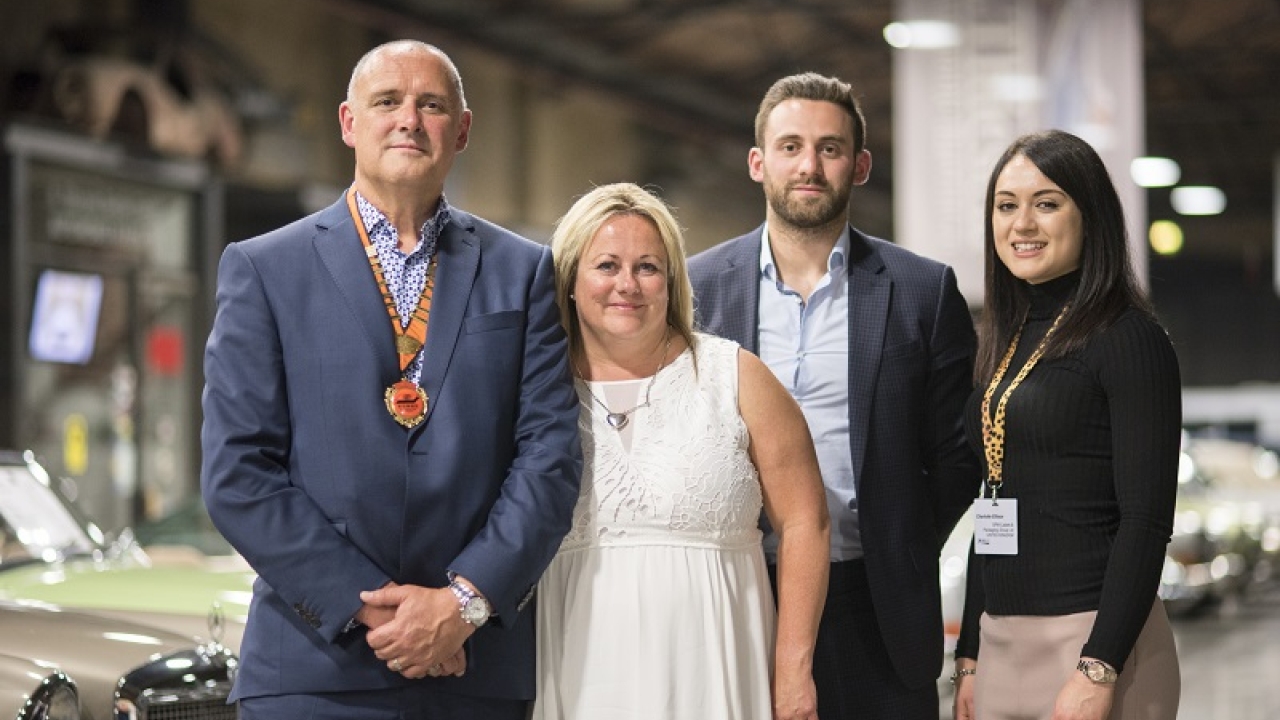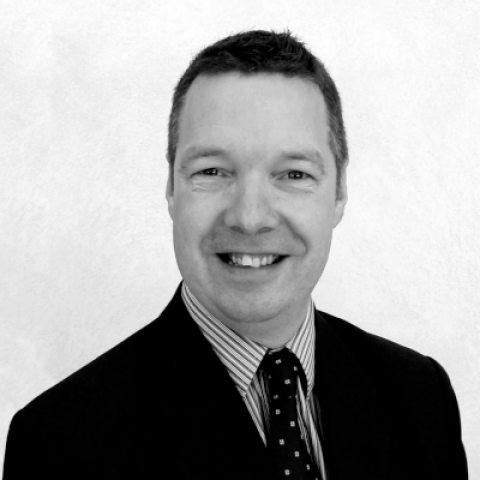Q&A: Chris Ellison, OPM

Labels & Labeling (L&L): How did you first enter the label industry?
Chris Ellison (CE): Probably like many others – by accident. But I have no regrets.
L&L: What are your main memories of those early days?
CE: Spirit-based flexographic inks and fires; those early days were fun. I remember looking at the established industry players, Finat and the very first Label-ex with awe. L&L: When and why did you set up OPM (Labels & Packaging) Group? CE: OPM was born from a very small engineering company turning over GBP £300k a year manufacturing small desk-top printing machines in which a family member held a 25 percent share. Way back in 1986 I was invited to purchase 25 percent of the remaining shares following a deceased shareholder, and following the sale of my own business. Within the following two years, with the decline in mechanical printing machines, we were making labels – software for the hardware so to speak – but the real turning point came when another set of unfortunate circumstances dictated I acquire the remaining share-holding. I was only 23 years old and owned something that I would later transform into a label company. Looking back, I didn’t realize at the time what a fantastic opportunity this would become.
L&L: Describe your management philosophy
CE: My management style is hard to put your finger on, but I think in general my philosophy is to give clear directions and actually stay pretty hands-off, but be ready and available to jump in to offer guidance, expertise and help when needed. I also go out of my way to make sure I know when my team needs help and work with them to set clear goals and KPI’s that are achievable. That means plenty of informal check-ins, both on the work they’re doing and on their general job satisfaction and mental well-being. I see running a business as a collaborative process, but one that still has a clear structure in place, where employees and management work together to drive our vision for OPM’s future.
L&L: How important are people to your business?
CE: People have always been essential to OPM. They are its most important resource; they provide the inspiration, creativity, vision and motivation that gives OPM its competitive advantage. Even in these days of advanced technology and automation our organization could not exist without people.
L&L: How important is age and experience when allocating responsibilities?
CE: The most common criteria we use to select people for a job are qualifications, technical skills and experience. But these criteria are never the only considerations. In many cases, providing that people have the basic skills needed and the right attitude to learning, we will train the specifics of a job. If they don’t have the right approach and personal culture, it is much more difficult to teach them to be friendly to customers, co-operate with their team mates and accept change. We always try to match the people we employ with the culture of our organization and vice-versa, so they will not find it frustrating and hard to integrate. Training will also be the way forward in the future as an ageing, experienced workforce will need to be replaced. We have worked hard utilizing the knowledge of our existing staff to create a training academy to ensure this knowledge is shared and passed to the next generation.
L&L: How important is state of the art technology to your business strategy?
CE: We have worked hard to develop a business environment that supports and promotes innovation as its culture. The OPM innovation strategy is based around four main factors that we consider especially important in improving innovation performance: culture, collaboration, strategy and technology. The state-of-the-art technology we have chosen Chris and Sue Ellison, joint MDs of OPM Group to drive innovation has helped OPM develop specialized products in a wide variety of sectors to maximize long-term value.
L&L: How close is OPM to achieving its process automation goals? How important is this to your business strategy?
CE: Process automation is key to OPM business control and agility. It allows us to optimize resources, speed development, and adapt faster to market changes.
Today, our aim is to maximize automation rather than re-engineer it. Technological advancements in software and technology have accelerated the evolution of business processes from ‘re-engineering’ to ‘automation’.
Our goal is to automate as many manual processes as possible. This is an ongoing project as we automate existing processes we develop new ways to automate the new technology we bring to the business too.
Automation has reduced the number of tasks we do manually. This allows us to get more done in the same amount of time, greatly increasing productivity. It frees up our time to work on tasks that add genuine value to the business, improving customer experience, allowing OPM to be more innovative and increasing our employees’ levels of motivation.
L&L: What are the challenges and rewards of running a family-owned business?
CE: I think our greatest benefit, as a family run business, is our ability to communicate openly and honestly with each other. As a family we have built up trust in each other while working together. The best thing about our team is that there is no resentment or rivalry because we have all earned our positions through skills and experience.
In some family businesses challenges can develop – it can become emotionally charged. I decided early on that in order for us to work harmoniously, we all needed to have distinct roles; too much overlap could lead to confusion. As a family we naturally hold common values about the business – for example, not accepting second best of ourselves or others. There are challenges as in any business but we overcome these as a team. I feel that the benefits of the quality time we get together achieving our goals makes up for extra demands that family ownership brings.
L&L: What succession planning advice would you give to family-run converter companies?
CE: The necessary steps have to be taken well in advance so that the building blocks are in place when the time is right. Succession planning can be complicated because of the emotions and relationships involved and because most people are not that comfortable discussing topics such as aging, death and their financial affairs.
Plan early. This allows you time to involve family members in your decision and open a dialogue. Ensure you have the time to mentor and gradually introduce your chosen successors into the business. Find the right advisers to help you put together a successful succession plan.
L&L: When did you first become active in Finat? What persuaded you to join?
CE: I became active in Finat in 2005, I was invited to speak about product and manufacturing divarication at the annual congress. The opportunity to network with like-minded converters to share best operational practices and knowledge of the market and access to inspirational events that Finat delivers annually.
L&L: What arguments would you use to persuade other converters to join trade organizations?
CE: Trade associations allow you to keep abreast of breaking news affecting our industry through publications aimed at your needs. Exchanging ideas is an important benefit of making connections with printers and industry suppliers from other parts of Europe and around the world, as well as the opportunity to share best operational practices and experience with new technologies or approaches to marketing.
You most certainly will make life-long friends. Industry meetings provide the opportunity to make valuable connections, and these can often turn into life-long friendships. Trade associations offer expert market analysis, access to the newest equipment and technology and training and information that can bring money-saving ideas to your company.
L&L: What are you interests outside of the label industry?
CE: Since I was seven years old my passion has always been racing motorbikes. At the age of 16 I was a junior Trials champion and raced competitively in Motor Cross. Up until the age of 35, I raced both two and three wheels both at Clubman and National status culminating in British Superbike events. Following a short spell in 2000 running my own British 250cc team, I’m now just interested in all forms of motorsport, bikes and cars: anything you can race with an engine.
In more recent years I’ve also become strangely attracted to gardening, particularly citrus and fruits that I cultivate in our greenhouse. As I relax, ironically, now I complain about the noisy motorbikes that buzz around on a Sunday morning – maybe it’s karma!
Read this opinion article in Labels & Labeling issue 4, 2018
Stay up to date
Subscribe to the free Label News newsletter and receive the latest content every week. We'll never share your email address.


